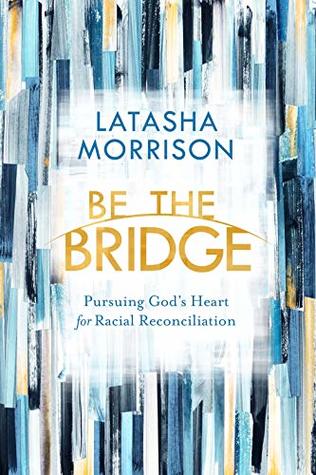More on this book
Community
Kindle Notes & Highlights
Read between
December 12 - December 25, 2020
We live in a fragmented time when people of faith often avoid discussions about race and when those who meaningfully confront the challenges often ignore faith.
They equated working hard with success, and they dismissed the reality of systemic issues that create barriers for people of color.
If you’re White, if you come from the majority culture, you’ll need to bend low in a posture of humility. You may need to talk less and listen more, opening your heart to the voices of your non-White brothers and sisters. You’ll need to open your mind and study the hard truths of history without trying to explain them away.
If you’re Black, Latinx, Asian, Native American, or part of any other non-White group, you’ll need to come with your own posture of humility, though it will look different from that of your White brothers and sisters. In humility, you might need to sit with other non-White groups and learn their stories. You might need to confess the ways you’ve perpetuated oppression of other non-White people.
Leadership didn’t strive to bring unity or encourage understanding of growing diversity, she said, and so the desegregation of her school had led to internal segregation.
“Love,” I said, “brings freedom, and slaves didn’t have freedom or choice. Family doesn’t leave family in bondage.” And having stated that truth, I changed the subject.
The truth is that race is a social construct, one that has divided and set one group over the other from the earliest days of humanity. The Christian construct, though, dismantles this way of thinking and seeks to reunite us under a common banner of love
Jesus can make beauty from ashes, but the family of God must first see and acknowledge the ashes.
To lament means to express sorrow or regret. Lamenting something horrific that has taken place allows a deep connection to form between the person lamenting and the harm that was done, and that emotional connection is the first step in creating a pathway for healing and hope. We have to sit in the sorrow, avoid trying to fix it right away, avoid our attempts to make it all
Could it be that lament connects us with God, that it allows us to experience his response and then cooperate with him to make wrongs right?
When we honestly acknowledge and lament the truth of our sins (especially our racial sins), we will come face to face with the shame and guilt of our collective past. Dealing
Black lives mattered less than farm equipment.
I’m here to say it clearly: let’s not hide from the communal shame and guilt of racism; let’s acknowledge it and step from its shadow and into the
The sin of racism—as well as my sin of colorism—disrupts God’s order of justice and righteousness. It denies the image of God in our brothers and sisters.
But the truth is, our bitterness and anger often control us. They keep our perpetrators close at hand, keep the wrongs they’ve done to us in the front of our minds. In choosing bitterness and anger, we hand power back over to those who’ve harmed us.
Awareness and confession of wrongdoing are vital steps in the reconciliation process. But confession alone isn’t enough. True reconciliation requires that we change our behavior, that we set a new trajectory.
Again, in Paul’s view, repentance isn’t hollow words and empty phrases. It’s not just confession to relieve our sense of guilt. Godly sorrow produces a change of heart, a readiness to move forward in making justice.
The founding fathers weren’t saying that all God’s children were created equal; they were saying that some—landowning men of European descent—were created more equal than others.
Reparation can seem like a fringe term used only by activists, but it is a thoroughly biblical concept.
Having become the mother of a Black child, she began studying more about white supremacy and systemic privilege. She learned how to speak about adoption in a way that brought dignity to Abraham and his birth mother (with whom she stays in touch) instead of dignity to herself as some sort of “white savior.”
He loved us so we could love others in his name. He made us bridge builders so we could draw others into bridge building in his name. How do I know?


